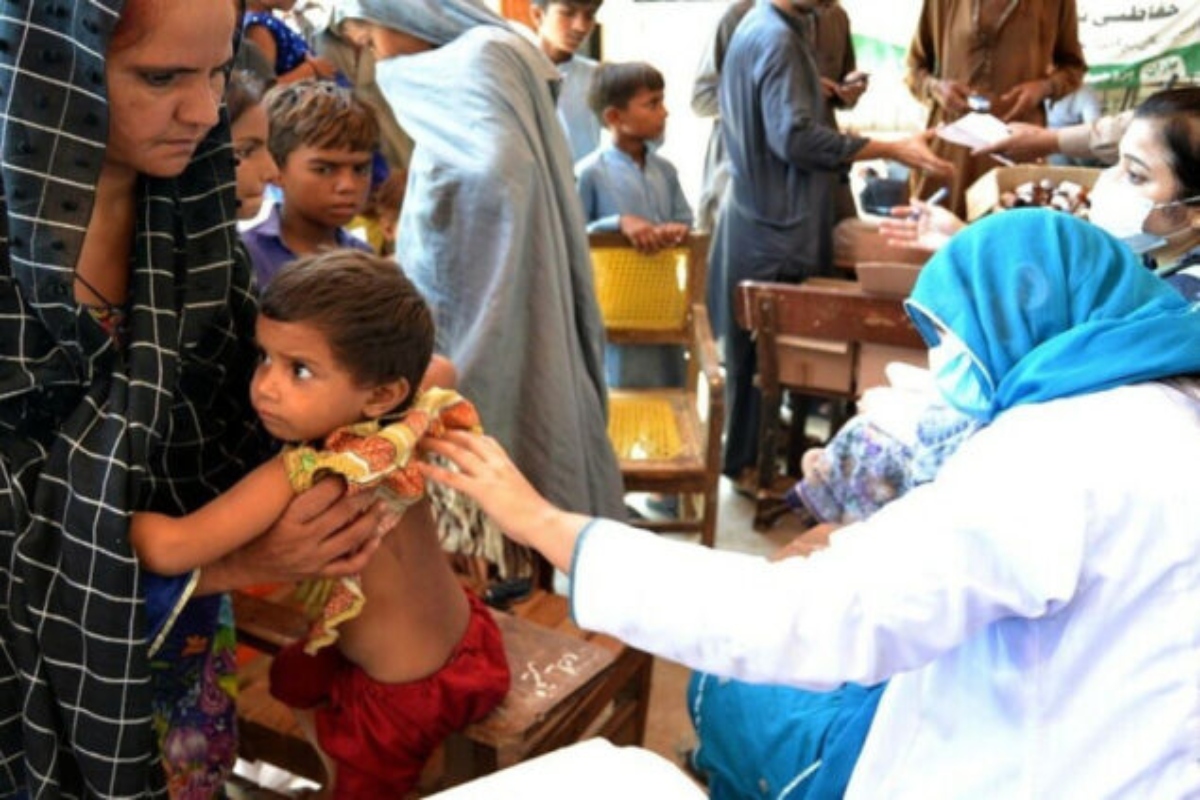7,055 cases of diarrhea and 6,713 cases of malaria have been reported in Sindh, a region that has been hit hard by viral infections and disorders.
In addition to 8,226 new cases of skin infections, 7,055 new cases of diarrhea were reported in Sindh, according to a report from the health department.
According to the report, there were 6173 cases of malaria reported amid the country’s heavy rains and floods, while 9549 cases of respiratory infections were documented in the province.
However, in Sindh within the past 24 hours, 19 more dengue cases have been reported.

According to the Sindh government, 45,209 patients received medical assistance, whereas 14,871 patients received treatment on the previous day.
Numerous cases of skin and eye infections, diarrhea, malaria, typhoid, and dengue fever have already been reported as a result of the stagnant floodwaters, which have spread over hundreds of square miles and may take two to six months to subside in some areas.
Pakistan is particularly badly affected by the issue right now. It lacks the resources to handle the longer-term repercussions of the flooding due to its struggling economy, which is being supported by loans from the International Monetary Fund.
Floods brought on by prolonged monsoon rains and melting glaciers have claimed the lives of nearly 1,700 people. Climate change is responsible for the disaster, which the government and UN estimate will cost $30 billion to repair in Pakistan.
According to authorities, flood-related diseases have claimed the lives of almost 340 people.
Pavan Manzoor is an experienced content writer , editor and social media handler along with a track record of youth-oriented activities in Pakistan and abroad. She was selected as a fully-funded delegate as a leadership fellow in Turkey. She also led a team of 5 volunteers at the week-long Young Professionals Fellowship in Maldives. She is also a member of the Youth Standing Committee on Higher Education.










